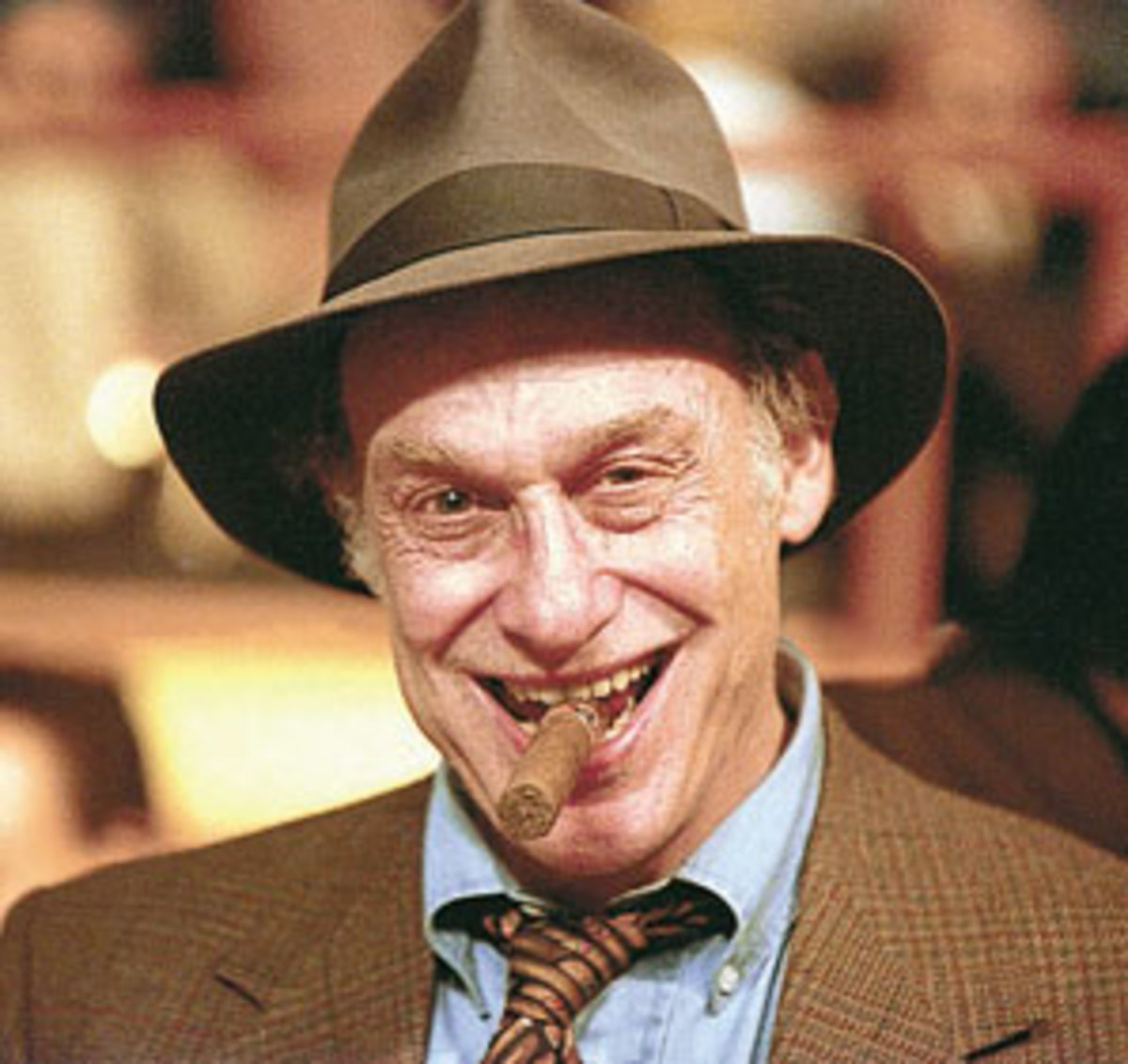Bert Sugar, icon and one-of-a-kind raconteur, will be sorely missed
Bert Sugar became a personality-for-hire in his later years, showing up at the big fights on HBO's dime, enlivening the press room (and the casino bar) with his Guys and Dolls shtick. He was an agreeable fount of lore, boxing history and creaky one-liners, not a few of which would find their way into print during fight week, especially as deadlines loomed and the scribes became more and more desperate. "But don't listen to me," he'd tell a wide-eyed novice, some poor kid covering his first fight, looking for a favorite, a line, anything. "I picked the Japs in the Big One." Bingo!
Mostly, though, he was there to provide atmosphere, some of it coming from his ever-present cigar, to be sure. Just the sight of him in his equally ever-present fedora (no one -- nobody -- ever saw the actual top of his head), his plaid pants, waving that cigar in one hand and a glass of vodka in the other, was enough to restore the sport to its Golden Age. He was a one-man re-enactment of a Toots Shor bar scene, a gentle reminder that this is all nonsense, not to be taken too seriously, that to truly witness greatness demands a jaundiced eye as well as jaundice.
Occasionally, or rather always, it became difficult to take him seriously, but Sugar would have wanted it no other way. He could, with his encyclopedic knowledge of boxing (he was pretty well versed in baseball, too), have been some éminence grise in the sport, dispensing opinions from on high, his intelligence (not in dispute) serving as a de facto authority for the game. But, really, who wants that? Much more fun to lean into the bar, fedora directly over the vodka now, and begin analysis of the promotion at hand with a reminder of the speaker's very first fight credential, from Cain vs. Abel.
• GALLERY: Bert Sugar's 13 greatest pound-for-pound fighters of all time
Sugar, who died Sunday at the age of 75, may have been a caricature, is what we're saying, but it was one of his own happy invention. He was not, in fact, one of those colorful but tragic Broadway denizens, bending elbows in neon shadows between fights, trading jibes with fellow low-lifes (journalists) into the dawn. That was his act, carefully constructed and scrupulously maintained, and it provided a nice pension, or at least an expense account, in his retirement. For the last decade or more, he was a kind of icon for rent, ready-made fight ambience, perhaps the most recognizable and oft-quoted figure in the fight game, and you just never knew why exactly.
In fact, he was a law school grad ("Only bar I ever passed," he said, maybe more than once) and a Madison Ave. adman, the genius behind a '60s Nestles campaign. It was in 1969 that he began confirming his Runyonesque leanings, using family money he once hinted, buying Boxing Illustrated and publishing it for four years. He was, by most accounts, a gifted enough writer and even editor, but not a competent businessman. With sufficient time for the publishing world to forget that fact, he became editor and publisher of The Ring, helping to nurse it back to respectability after a pay-for-ranking scandal rattled the once authoritative magazine. Four years there and he returned to Boxing Illustrated, all the while indulging in florid, rambling and altogether entertaining prose.
And for a figure who was cultivating a reputation for working at nothing so hard as being Bert Sugar, he was actually astonishingly tireless. When did he possibly have time to write 80 books? A lot of them were Boxing's Greatest Fighters type books (typical titles: Bert Sugar on Boxing, Bert Sugar's Baseball Hall of Fame) that suggested the financial demands of an upstate horse property. But there were occasional books on topics like Harry Houdini that suggested a curiosity beyond how he'd make a mortgage payment. In any case, for a former adman, he seemed to know an awful lot about boxing, or whatever he turned his attention to. That depth of knowledge, that kind of industry, that sort of discipline didn't entirely square with this character he created, the fedora-topped blowhard, tossing off wisecracks for the price of a martini. But it made him more interesting than even he'd want you to believe.
Of course, what most people will remember about Bert Sugar, even more than the acquired accoutrements of being Bert Sugar (the hats, the cigars, the rock glass full of vodka, the groaners), is his wolfish grin. The business of being Bert Sugar was a complicated one, a self-made go-to guy who was basically adding his personality to whatever fight promotion required it, or would pay for it, at least in these later years. But it didn't seem to compromise him one bit. Being Bert Sugar wasn't such hard work, after all. That grin -- he seemed in a fairly constant state of delight -- came for free.






